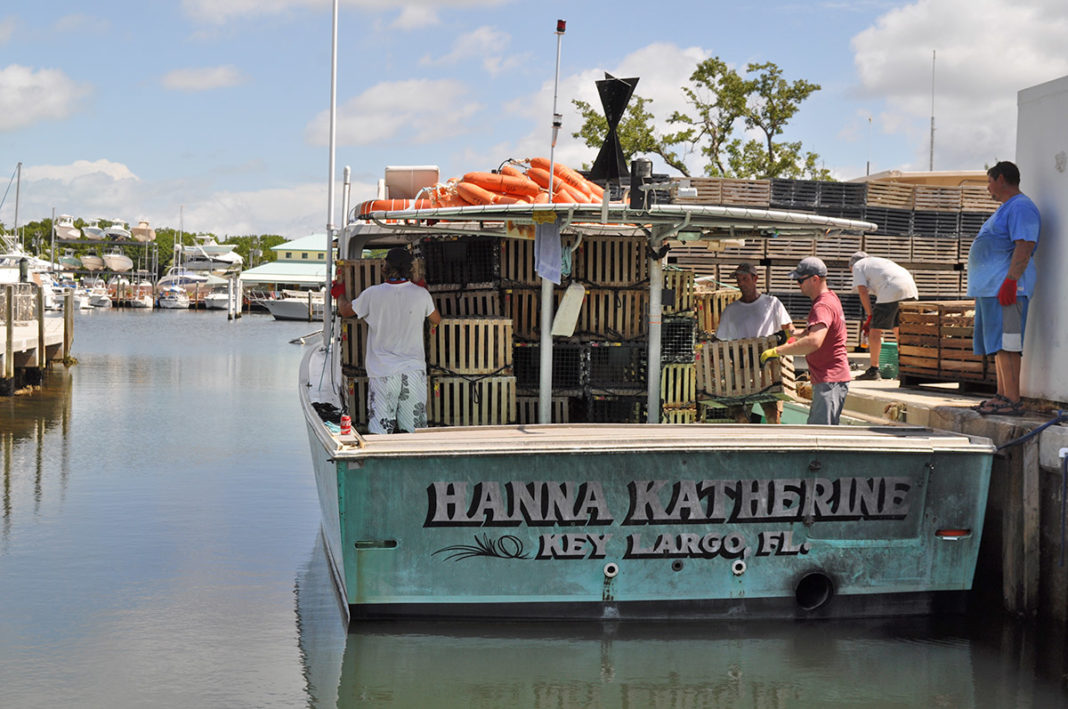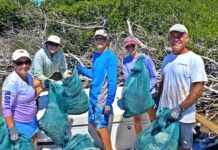Monroe County is putting out a $1.43 million bid for a management operation to clear nearshore debris between Marathon and Sugarloaf Key. The cleanup is funded by a state Fish and Wildlife Commission (FWC) grant to finish cleaning up after Hurricane Irma. The funds are designed to pay commercial fishermen for the work. It’s similar to a program in which local dive operators were paid to pull hurricane debris out of deep water.
“This is coming out of a larger, $44 million funding pot,” said Celia Hitchens, the county’s senior administrator of marine resources.
The winning bidder will pay commercial fishermen for the work. Whether that’s by the day, or the hour, or the pound is yet to be decided. The bids will be opened in early January 2021, and it’s planned for the work to begin in February with the work complete by the end of June.
Bill Kelly, the CEO of the Florida Keys Commercial Fishermen’s Association, said the group will be submitting its own bid.
“We have the best ‘dump trucks’ that ever went to sea,” Kelly said, laughing, referencing the large commercial fishing boats capable of transporting debris back to land for proper disposal.
Kelly said hiring commercial fishermen is the right choice.
“Commercial fishermen are stakeholders. They know the marine environment, know the topography and the marine organisms and animals that inhabit this environment,” Kelly said. “We’ve done this kind of work previously. We’re efficient at doing it with zero injuries and zero secondary environmental damage.”
Most likely a small, shallow draft vessel and crew will pluck the debris off the shoreline and transport it to the “mother ship,” or commercial fishing boat.
Kelly is quick to dispel the notion that commercial fishermen are cleaning up after themselves, that the debris is wrecked fishing gear.
“Three years and two months after the storm, any lobster trap has disintegrated, been eaten by marine organisms. The only thing that might be left is trap rope and plastic funnels. What we’ll be picking up is anything from a freezer to a pull toy,” he said.
He said reports indicate that less than 10% of nearshore debris consists of commercial fishing gear.
It’s been a tough year for commercial fishermen. The Keys exports about 95% of its catch to China. In February, at the height of the coronavirus pandemic in Asia, the number of lobsters shipped dropped to near zero. As demand decreased, so did the price per pound. In recent years, Florida lobster exports to China have ranged from $50 million to $75 million a year.
























